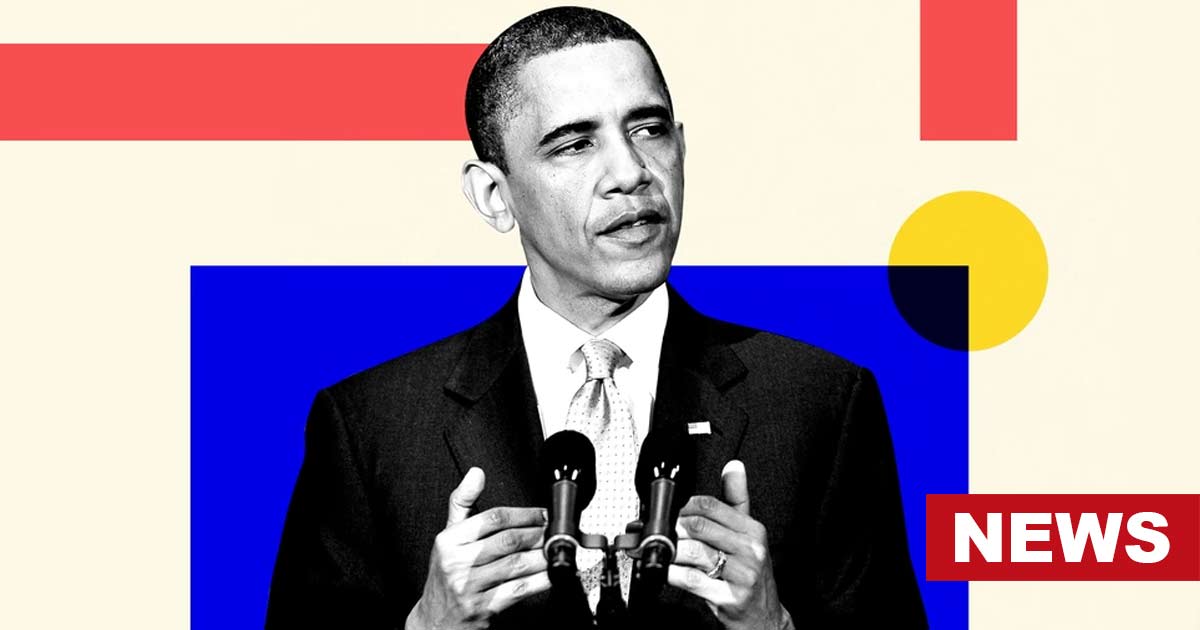In a candid interview for Hasan Minaj’s “Patriot Act” on Netflix, former US President Barack Obama talked about mental health. He also discussed a range of topics, including his renowned end-of-year lists, playlists, and the aspirations he held while residing in the White House.
In the thought-provoking episode, Minhaj asked President Obama about his emotional state amidst a whirlwind of significant international events. Minhaj raised concerns about the overturning of Roe v. Wade, book bans, numerous mass shootings, and the pressing issue of climate change.
The comedian asserted that someone as intelligent and perceptive as Obama could not help but experience moments of depression. He stated, “There is no way the ‘Hope’ and the ‘Change’ guy does not feel depressed. You’re too smart not to feel depressed. You’re too intelligent.”
Obama responded candidly, acknowledging that there were indeed times when he felt a sense of depression. He expressed empathy by highlighting the distressing scenario of an entire school gripped by fear when faced with a gunman wielding weapons of war. Obama believed that anyone who does not experience a breaking heart in such circumstances is disconnected from their emotions.
Besides including personal struggles when President Barack Obama talked about mental health, he also shared concerns about climate change—referencing the alarming prevalence of record-breaking forest fires. He acknowledged that progress in combating climate change is not happening as rapidly as necessary.
Despite these challenges, Obama stressed the importance of maintaining perspective. He emphasized the need to acknowledge the genuine threats and challenges before us while also recognizing the progress humanity has made thus far.
In an attempt to provide context, Obama cited major historical events such as World War I, World War II, and the Great Depression. He suggested that compared to those catastrophic moments in history, the current state of affairs is relatively less severe.
Obama explained that both he and Minhaj grew up during a unique period in which, despite occasional setbacks, humanity as a whole was progressing towards positive change.
He said: “You grew up and, in some ways, I grew up in this anomalous stretch of time in which even though bad things were happening, for the most part, the trajectory of humanity was things were getting better. We’re becoming less racist and less sexist and less homophobic and better educated and healthier.”
The verdict of President Barrack Obama on mental health also covered the impact of global fame on his mental health and privacy. He confessed that he missed the peace and quiet of anonymity and, surprisingly, a recurring dream he had while in the White House was that of him not being president any more.
He said: “I did have dreams where I wasn’t president–and they were some of my happiest dreams. I’d sit on a bench and suddenly I realized that nobody recognizes me. And that’s the only thing that happened in the dream: I’d just be sitting there, chill. And I felt like I won the lottery.”
The interview containing the thoughts of President barrack Obama on depression recommended acknowledging the present challenges while remaining optimistic about humanity’s potential for progress.
He encouraged individuals not to be blind to the problems we face but to also remember the significant strides we have made as a society. By maintaining a balanced perspective, Obama believed that we can address the genuine threats before us while remaining hopeful for a better future.





















